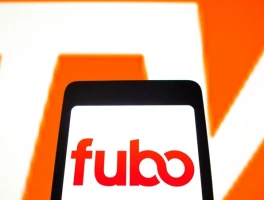You’re asking how to watch the Arizona State vs. Houston Oct. 25: TV, Stream - SportsTalk 790. The simple answer is Fubo. You can find the live stream there, though you’ll want to check for any of those pesky regional restrictions.
But let’s be honest, that’s not the real question, is it?
When I see a query like this, I don’t just see a football fan trying to catch a game. I see a data point. A single, flashing light on a map that signifies one of the most profound and exciting transformations of our lifetime. The simple act of choosing to stream this game is a vote, a declaration that the old world of media is over. You’re not just watching a game; you’re participating in the construction of a new reality. And frankly, this is the kind of progress that reminds me why I got into this field in the first place. It’s absolutely thrilling.
What we’re witnessing is the final, beautiful collapse of the broadcast tower—both literally and metaphorically. For the better part of a century, our cultural intake was dictated by a handful of executives in a few buildings in New York and Los Angeles. They decided what was important, what was entertaining, and when we were allowed to consume it. It was a monologue, beamed from a central tower out to a passive audience.
That era is dead. And thank goodness for that.
The Great Unbundling of Everything
Think of the old cable television model as a prix fixe menu at a restaurant you were forced to eat at. You paid a hefty price for a 12-course meal, even if you only wanted the steak and the dessert. You got 500 channels of content, but you were still beholden to someone else’s schedule. Kickoff at 1:05 PM? You’d better be on your couch at 1:05 PM.
Streaming services like Fubo represent something far more radical. This is the shift to a completely a la carte media diet—in simpler terms, it means you are the chef, the critic, and the diner, all at once. You pick the ingredients. This is the technological equivalent of the printing press, which took the written word out of the hands of the scribes and gave it to the masses. We’re seeing the same democratization of video, of live events, of culture itself.
This isn’t just about convenience. It’s a fundamental paradigm shift in access. The ability to pull a live college football game from the ether onto your device of choice, wherever you are, is built on a staggering scaffold of technology—fiber optics, data compression, cloud infrastructure—all working in silent, perfect harmony. This is the quiet, invisible engine that’s dismantling a multi-billion dollar industry and rebuilding it in the image of the individual user.

The question is no longer "what's on TV?" The question is "what corner of the human experience do I want to access right now?" The answer could be a football game in Arizona, a chess tournament in Norway, or a live lecture on quantum physics from my old colleagues at MIT. The platform doesn't care. It just delivers. But does this infinite choice create a better-informed, more connected society? Or does it simply allow us to build more comfortable, more insulated digital bubbles?
Your Universe, Curated by You
This is where it gets really exciting for me. We're moving beyond simple "on-demand" and into the realm of the truly personalized media universe. The distinction between live and recorded, between professional and user-generated, between a game and a show is dissolving into a single, fluid stream of content, and the speed of this change is just staggering—it means the gap between today’s media landscape and tomorrow’s is closing faster than we can even draw the roadmap.
Imagine your screen not as a television, but as a dynamic, intelligent portal. You’re watching the Arizona State game. During a commercial break, your portal knows you’re also interested in space exploration, so it serves you a quick, brilliant 90-second documentary on the latest images from the Webb Telescope. A player gets a specific injury, and you can instantly pull up an augmented reality overlay explaining the physiology. The game ends, and the portal seamlessly transitions to a post-game discussion hosted not by a network pundit, but by your favorite independent analyst on YouTube.
This is not science fiction. The building blocks are already here. We’re just learning how to put them together. We’re leaving the static, one-to-many model and entering a dynamic, one-to-one world.
Of course, this immense power comes with an immense responsibility. The same algorithms that can curate a world of wonder and education for you can also trap you in an echo chamber of comforting biases. As we architect these new systems, we have to ask ourselves a critical question: are we building tools for human expansion, or just more efficient engines for distraction? How do we design for serendipity and discovery in a world optimized for personalization?
The Dawn of Personal Prime Time
So, yes, you can watch the Arizona State vs. Houston game on Fubo. But when you do, take a moment to appreciate what’s really happening. You are exercising a form of control that was unimaginable just a generation ago.
The very concept of "prime time"—that sacred 8 PM to 11 PM slot dictated by networks—is now a relic. Your prime time is whenever you decide it is. Your channel is whatever you want to pull into your portal. The monolithic, shared cultural experience of everyone watching the same thing at the same time is fading, being replaced by a billion-faceted culture of infinite, vibrant niches.
That simple click to stream a game is a quiet revolution. It's a declaration of your digital sovereignty. You are the programmer. You are the station manager. You are the architect of your own personal reality. Welcome to the future. It’s going to be one hell of a show.

